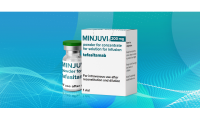-
Pfizer’s Talzenna recommended by NICE for advanced breast cancer
- Source: drugdu
- 423
- January 23, 2024
-
Biotech layoffs strike hard with PMV Pharma, Ikena, and Bayer sacking staff
- Source: drugdu
- 284
- January 23, 2024
-
World’s First Perioperative Immunization Phase III Study Results in Esophageal Cancer Presented at 2024 ASCO GI
- Source: drugdu
- 287
- January 23, 2024
-
Hai Zheng Pharmaceutical and Sinopharm Signed Strategic Cooperation Agreement on Retail Project
- Source: drugdu
- 255
- January 23, 2024
-
FastWave Medical kicks off first-in-human study of its IVL tech
- Source: drugdu
- 353
- January 22, 2024
-
FDA Fast Tracks Nurix Therapeutics, Inc’s Novel BTK Inhibitor for CLL, SLL
- Source: drugdu
- 260
- January 22, 2024
-
Ultrasensitive Molecular Diagnostic Tools Detect Asymptomatic Malaria
- Source: drugdu
- 467
- January 22, 2024
-
New Algorithm Detects and Identifies Novel Bacterial Organisms
- Source: drugdu
- 316
- January 22, 2024
-
Comanche raises $75m to develop preeclampsia therapy
- Source: drugdu
- 336
- January 22, 2024
your submission has already been received.
OK
Subscribe
Please enter a valid Email address!
Submit
The most relevant industry news & insight will be sent to you every two weeks.

















